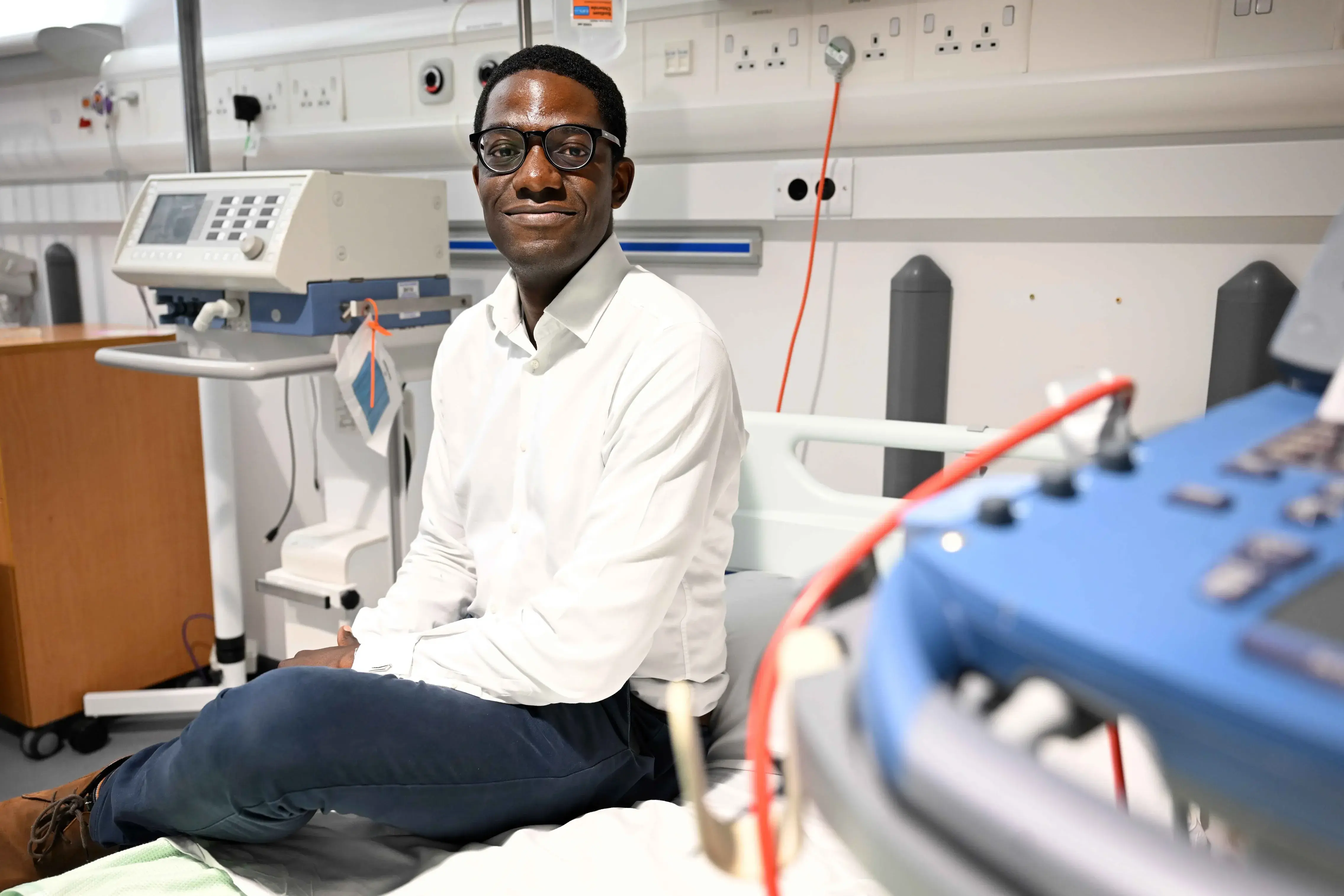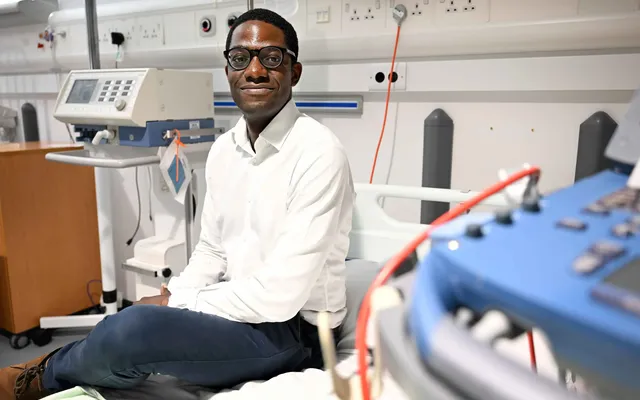Fighting back against superbugs – enhancing the immune response in ageing lungs
Dr Wezi Sendama is exploring how ageing impacts lung immunity, aiming to reduce infections and antibiotic dependence.
As we get older, our immune system weakens, making us more vulnerable to infections like pneumonia. In turn, this leads to greater reliance on antibiotics, contributing to the growing challenge of drug-resistant superbugs. Dr Wezi Sendama, based at Newcastle University, is working to change that.
Wezi’s research focuses on how ageing affects immune responses in the lungs. By identifying ways to boost natural immunity, his work could reduce the severity of infections, decrease antibiotic use, and therefore play an important role in the fight against antimicrobial resistance.
Ageing and our lungs
“As we get older, our immune system becomes less capable of responding to threats”, says Wezi, “and its ability to limit collateral damage to our tissue becomes impaired.”
“That means that older people are more susceptible to respiratory tract infections like pneumonia, and when they get them, they can be more severe.”
Bacterial pneumonia leads to inflammation in tiny air sacs in the lungs, which can fill with fluid, making it difficult for oxygen to reach the bloodstream. As we age, inflammation is slower to subside once an infection is cleared and may even turn into persistent low-level inflammation. This can cause collateral damage that makes secondary infections, like sepsis, more likely. Having pneumonia later in life is more likely to be fatal.
This all means that antibiotics may need to be used more frequently in older patients, exacerbating the challenge of antimicrobial resistance.

Understanding what changes as we get older
To better understand these age-related changes, Wezi’s study focused on alveolar macrophages, the immune cells in the lungs that regulate inflammation after an infection.
To simulate the early stages of infection, his team introduced a bacterial component into participants’ lungs and then used bronchoscopy, a specialised camera technique, to collect and analyse immune cells. By comparing immune responses between young adults aged 18 to 30 and older adults over 65, the researchers identified key differences in how these immune cells respond to infection.
This research could aid the development of targeted treatments, aimed at enhancing the immune response in older adults. By improving the immune response, these treatments could reduce hospital stays, lessen the severity of infections, and decrease the need for antibiotics.
Older people are more susceptible to respiratory tract infections like pneumonia, and when they get them, they can be more severe. Dr Wezi Sendama

A dual career in research and medicine
Wezi now holds a prestigious NIHR Academic Clinical Lecturer position, allowing him to combine working as a doctor in respiratory medicine with his research pursuits.
Our PhD training programme has been instrumental in shaping his career. “It’s been a great help in the progression of my career and provided me with invaluable research training,” says Wezi. The Foundation’s support allowed him to take time out of his clinical work to pursue a PhD in a top-tier research setting, surrounded by leading experts. “The opportunity to train in such an excellent research environment has enabled me to develop research questions that are directly relevant to my clinical work,” he says.
This experience has positioned Wezi as a clinical academic, where his clinical practice informs his research, and his research, in turn, enhances patient care. “Being able to combine clinical work with research has allowed me to make better care decisions and improve patient outcomes,” he says. The funding, he believes, has laid the groundwork for what he hopes will be a rich and impactful career, ultimately benefiting patients in meaningful ways. “I feel very fortunate, and I hope that my work will be helpful to people in some way,” Wezi concludes.
A thank you to donors
“As for people that donate for the purposes of research – they are allowing patient care to be richer,” says Wezi.
We are proud to be funding this research and extend a special thank you to the Barbour Foundation for supporting it.
We know that healthcare organisations active in research have better patient outcomes. So, donors are helping patient care to stay on the cutting edge of what it should be. Dr Wezi Sendama

Related: Uncovering antimicrobial resistance in unusual places
Research by Dr Jordan Sealey, another of our former PhD students, has explored antimicrobial resistance in animals and zoos.
Jordan's research
More impact stories
Take a look at our impact pages for a range of stories about the difference we have made through our funded research.
Our impact
Our full impact report
Thanks to you, we’re supporting some of the brightest and best medical researchers in the world to solve neglected health problems.
In our impact report, we showcase some of the life-changing science you’ve made happen.
2025 Impact ReportDonate now and change lives
Your support has led to ground-breaking discoveries and life-changing advances, but there is still more to do. For every researcher we support, there are many more we can’t – not because they lack merit, but because we lack the funds to support them all. You can change that. Your donation today could support research like Wezi's, and could fund the next life-changing discovery.
Donate now